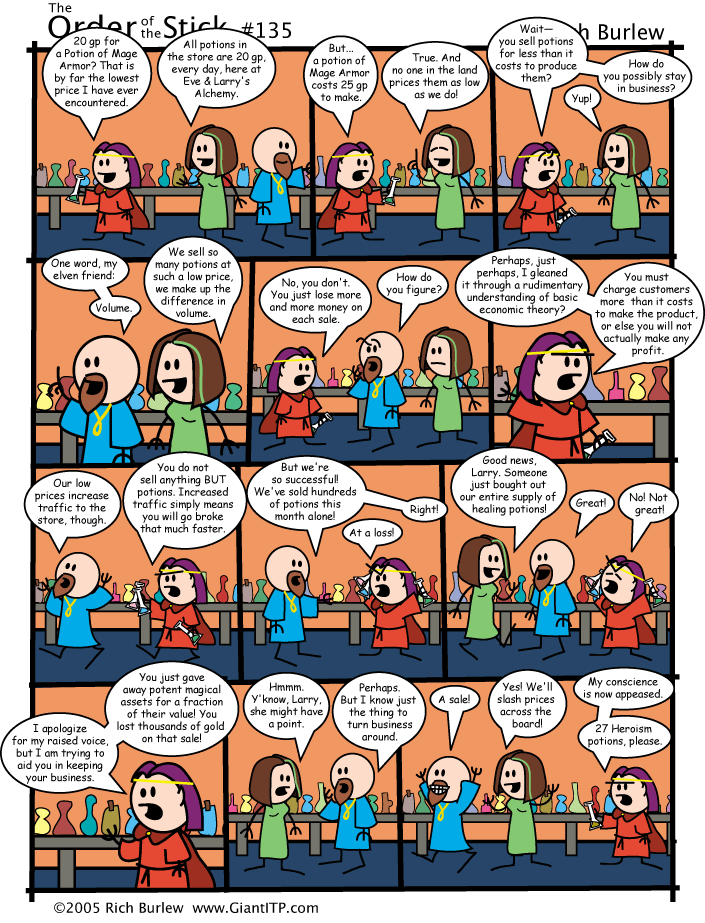Dice are the quintessential randomizers for RPGs. They come in all kinds of shapes, they often look really awesome, and they have a satisfying tactile factor. Dice are pretty awesome, and given the business I saw vendors doing in dice at GenCon I doubt we have any fear that dice will go away.
But what about the stuff that dice doesn't do so well? Dice are (generally) rather small and limited to a simple letter, number, symbol, or maybe a single short word. The more faces the less usable the real estate on those faces as well, meaning that if you want to get complicated dice maybe aren't the best solution to the problem of randomly accessed game information.
Cards aren't new to RPGs by any stretch, but when you see them they generally take the form of play aids. Things like the Deck of Many Things, or creature and item decks from various games. Some game lines even produce decks of reference cards for player powers.
You don't see a lot of games using cards in place of dice though. There are some, just not many. The Deadlands RPG used them for great thematic effect when hucksters cast their magic, and the Savage Worlds version used a poker deck for initiative as well. FATE has a deck that reproduces the results of Fate/Fudge dice in card form as another example.
An example worth discussing further. Dice follow a probability plot for their results over time. Roll a d6 enough times and you should get equal results for each face, roll 2d6 enough times and you should see a standard bell curve form, with 7s being at the center and 2s and 12s being on the wings. But when you slice probability into a randomly selected short duration observed window of results these probability distributions can break down; your dice run "hot" and you see a lot of high results, or maybe the run opposite and go "cold". That's just the nature of the beast, and to an extent that is part of what makes each roll so potentially exciting (unless you spend so much time rolling that even mundane tasks get a resolution roll, but that's another column).
What happens if you recreate that 2d6 roll as a deck of cards? You get 36 cards, running from 2 to 12 in value, with varying numbers of cards for each result. If you were to use this during a game you'd always see one result of 12 and one result of 2 in every 36 "rolls", you'd also see six instances of 7, and five each of 6 and 8. The curve of the results doesn't change, but assuming you run fully through the deck before shuffling and starting fresh you will always see a "perfect" distribution of results.
Change the number of cards and you can change the distribution while keeping the same results. You could add an additional 2 and 12 result and see more extreme success and extreme (likely) failures in a given run through of the deck. Manipulation like this can create all kinds of distributions you cannot achieve with dice (at least not easily), like a saw tooth pattern where even results are more likely than odd on an otherwise flat curve; ex. one card each for odd values between 1 and 10 and two cards each for the even values, that's thirty cards ranging from 1 to 10 but with even results coming up twice as often as odd, and even values all having an (initially) equal chance of appearing.
That parenthetical is important too. If you are piling up discarded cards from prior "rolls" (draws or pulls commonly), your chances are starting to change. Like a card sharp reading a blackjack deck and counting cards to win the players could start to gauge the increasing or decreasing odds of given values or value ranges. If you have already seen two 10s, three jacks, all the queens, and a king and you need to draw at least a 10 to succeed you know that your pool of successful draws has dropped from sixteen cards at the start of the deck to only six cards left in the deck. Depending on how deep into the deck you are the actual odds may be better, or worse, for you to draw that needed 10+ result. That'll put a different spin on those late game "Hail Mary" moves, especially those do or die saves and defense (or attack) rolls.
Cards also have a lot of extra room on them (unless they are really small, but small cards are annoying), and you can add additional information to them if you like. Much like a standard deck of cards has thirteen values, with each value appearing four times, in two different colors and four different suits. That standard deck can yield a surprising amount of information. You can pull 1:2 for color, 1:4 for suit, 4:52 for value, or even 1:52 for a specific card.
If your game used a standard 52 cards deck for task resolution and for it was established that attack rolls that pulls hearts were critical and did +2 damage even if the attack otherwise missed that changes the value of a quarter of the deck. You could do this for each suit, maybe a attack that pulls clubs is never better than a "winged em" result and does -1 damage, and spades gain some kind of side effect, like knocking the enemy down, or disarming the, while diamonds are very efficient shots, and cost the player fewer action points. This will allow the cards to generate four times as many results across the same range. Apply the same logic to a d20 and you need to add a separate die for the suit.
This concept can extend to player abilities. A warrior specialty might gain some additional effect from the card color, or even the value and color combination. Imagine pulling a card as you attack a powerful foe and you see you have drawn a black face card, you look at your sheet and see that your Reaper ability activates only for black face cards and confers the ability to make an immediate second attack. The healer finds that on a pull result of odd hearts he can heal double the amount, (or perhaps a bonus equal to the value of the card). The possibilities are vast...
...vast enough that custom decks enter the equation. A game that is based on the Avatar: The Last Airbender animated series could have cards aligned to each element and benders gain a bonus if they draw their element, but suffer a penalty on the opposing element. This could even go to a Chinese style 5 element cycle (water, wood, fire, metal, and air), or beyond (want to add spirit?, you can, and not disturb the probability state).
Cards could also contain similar information for other mechanics. Such decks could generate details of social interactions, health recovery, or even the length of time to complete a task. Maybe you pull a high result for a bartering session but the duration on the card tells you that it took an hour to get to that result. A card with a lesser effect might give you almost as good a barter but in only 10 minutes.
Of course this also allows for quicker math. If your dice mechanic is based on the cumulative result of 3d6 a card can tell remove the need to add the dice, while a simple graphic of the dice can show their values if there is need to know what each die "rolled".
Unlike dice, which a player can only be expected to normally have 1 or two of that she re-rolls as needed, the cards could be kept and collection of card sets or runs of results could trigger further effects. In a social situation if you can collect 3 of the same "suit" you can turn them in during your next draw to change the suit of that draw or to gain a bonus. Instead of the suit there could be a sort of puzzle piece icon, with the reward coming if you can collect the 3 icons (which could be distributed throughout the deck along a different method than suits) to complete the puzzle.
I think there are probably more than a few more ideas that could be worked into a simple draw deck to replace basic dice for an RPG. There certainly are board games where card and deck management systems could be integrated into an RPG for even more variation on the theme. The Middle Earth Quest board game uses the character's deck as both their abilities and powers and as their health, with cards being sent to a discard pile by damage and by use. Only through resting & recovery can the discard be shuffled back into the deck, and if the character's deck is depleted they are defeated and sent to the nearest haven. Taking damage can come from your hand - in which case you know what you are losing, but you also lose cards you can play - or from the deck, where they remain hidden, possibly stealing away a powerful ability that you had hoped to draw. Integrating similar mechanics into an RPG could be its own column entirely.
So, in closing, the use of cards and decks has the ability to replace dice and simultaneously increase information density and allow for additional effects and mechanics to be added to each "roll" without adding additional dice and potentially altering the desired probability distribution. This kind of change may not be desirable to all, but there is certainly compelling evidence that game play could be deepened without being made more complex as a result.





